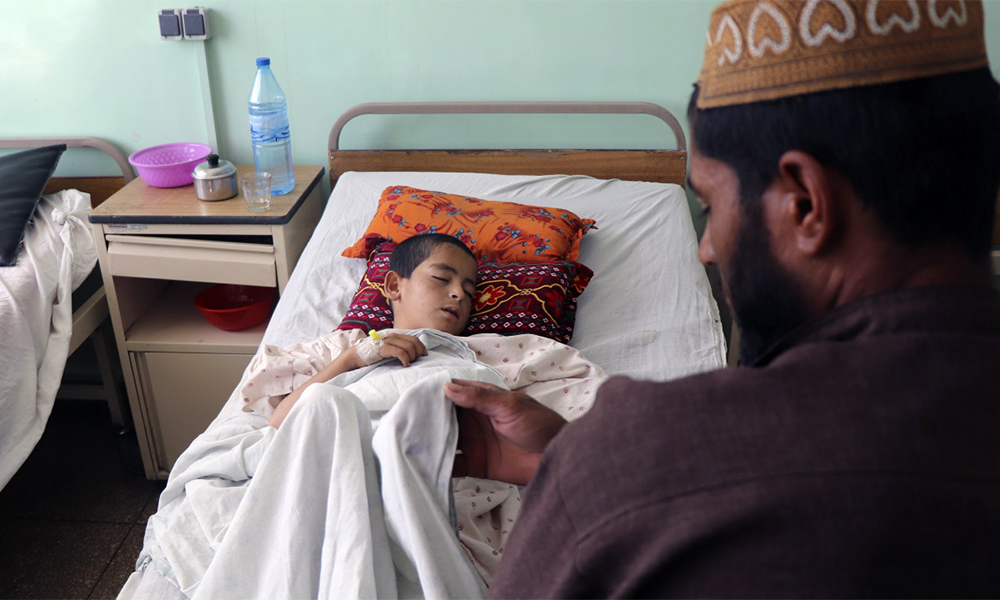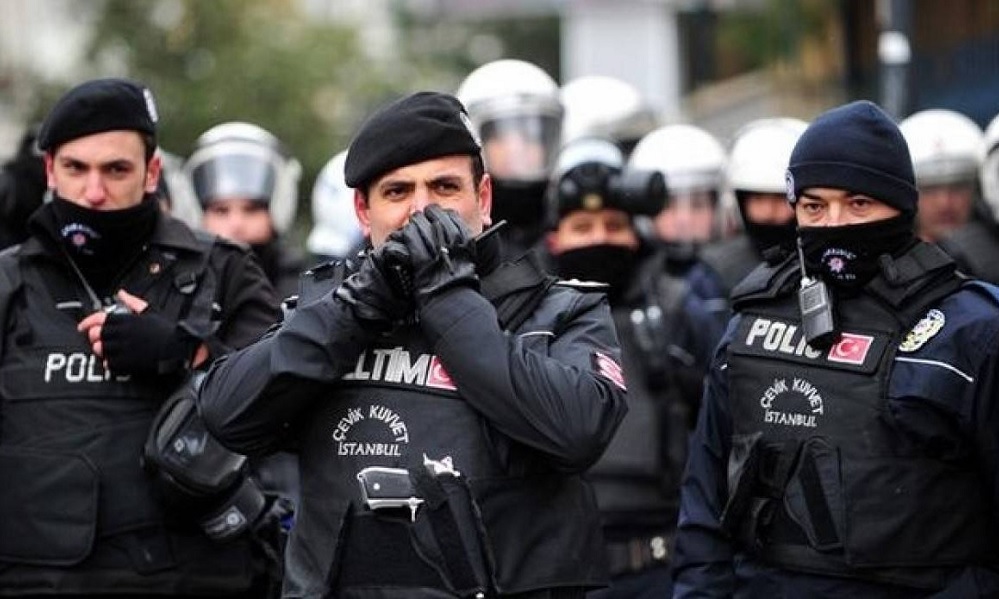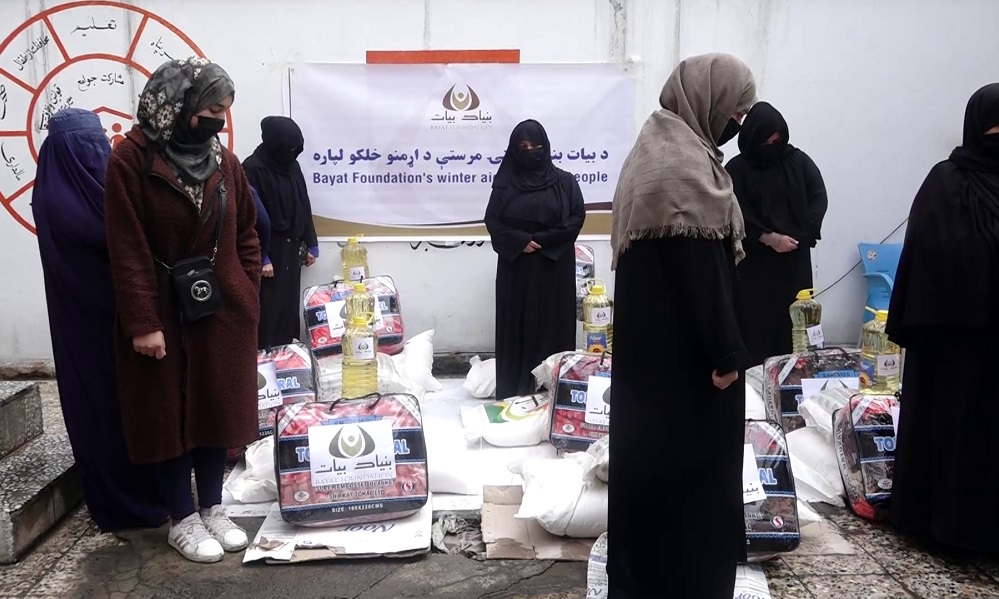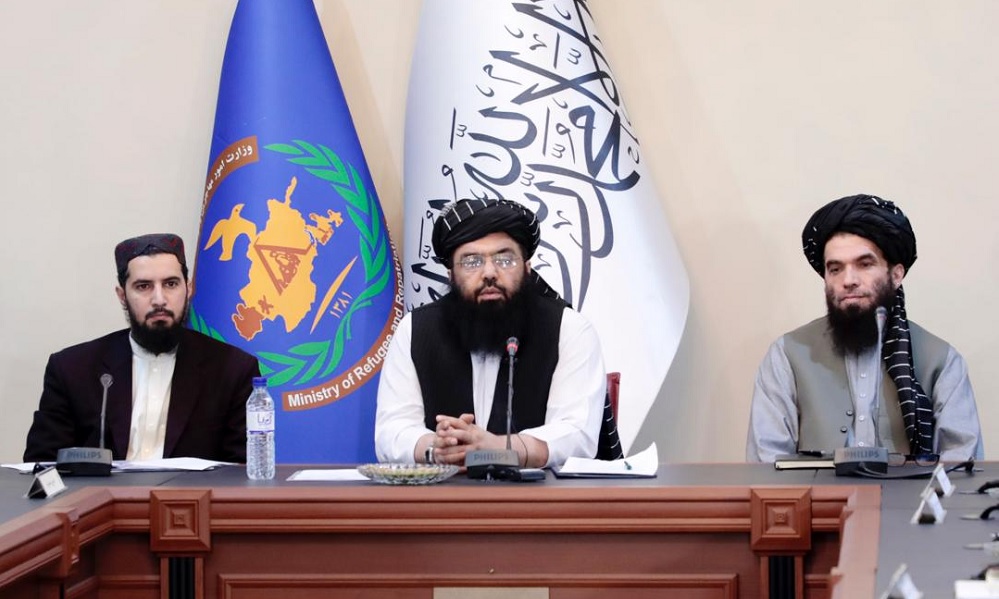Latest News
ICRC to strengthen ties with China in aiding Afghanistan

The International Committee of the Red Cross (ICRC) will strengthen cooperation with China to provide humanitarian aid to Afghanistan, especially in the health sector, said Pierre Kraehenbuehl, head of the ICRC’s Regional Delegation for East Asia, Reuters reported.
This comes amid a growing humanitarian crisis in Afghanistan on the back of economic sanctions.
Kraehenbuehl said about 47 percent of the Afghan population faces food insecurity in one form or another and that because the flow of money into Afghanistan has dried up, institutions that crucially provide for the needs of the people are currently facing incredibly dire circumstances.
In an interview with China Global Television Network (CGTN) he said the ICRC is mobilizing all resources to help Afghanistan get through the humanitarian crisis it is currently facing, and approaching China is at the top of its agenda.
“We need about 150 million Swiss Francs or 160 million U.S. dollars until the end of 2022. We will mobilize support from states, and in that regard, we are approaching China and this is a priority for us. We welcome the fact that our partners in the Red Cross Society of China have come forward with the first financial support, which we are very grateful for, and we are now continuing the dialogue also with the Ministry of Foreign Affairs. We hope that there are avenues of cooperation that can open up,” said the official.
The ICRC representative also said that China has contributed a lot to improving medical conditions in Afghanistan, and that the organization is looking forward to strengthening cooperation with China in that regard.
A freight train, carrying 1,000-plus tons of humanitarian aid left the city of Urumqi, capital of northwest China’s Xinjiang Uygur Autonomous Region on Saturday afternoon and headed for Mazar-e-Sharif, the fourth largest city in Afghanistan. It will take 12 days to get the winter clothes, cotton shoes, blankets, naan, and milk-tea powder, and other materials delivered, Reuters reported.
Latest News
Turkish intelligence captures a Daesh member near the Durand Line

Turkish intelligence agents have captured a senior member of Daesh near the Durand Line, reportedly preventing planned suicide attacks in Turkey and other countries, according to Turkey’s state-run Anadolu Agency on Monday.
The suspect, identified as Mehmet Goren, is a Turkish citizen. He was apprehended during a covert operation and transferred to Turkey. Details on the timing of the operation or the involvement of Afghan and Pakistani authorities were not disclosed.
According to the report, Goren had risen through the ranks of Daesh and was allegedly tasked with carrying out suicide bombings in Turkey, Pakistan, Afghanistan, and Europe.
Daesh has a history of deadly attacks in Turkey, including the January 1, 2017 shooting at an Istanbul nightclub that killed 39 people.
Anadolu Agency reported that Goren’s arrest also provided intelligence on the group’s recruitment strategies and planned activities.
Latest News
Dozens of needy families in Kabul receive winter aid from Bayat Foundation

Dozens of needy families in Kabul’s fifth district have received essential winter assistance from the Bayat Foundation, as part of ongoing efforts to ease hardship during the cold season and worsening economic conditions.
According to foundation officials, the aid package includes staple food items such as flour, rice, and cooking oil, along with warm blankets to help families cope with freezing temperatures. Haji Mohammad Ismail, Deputy Head of Bayat Foundation, said the distribution began in Kabul and will soon be expanded to other provinces.
“Our assistance includes flour, rice, cooking oil, and blankets,” Ismail said. “Today, we started distributing these items in Kabul’s fifth district, and God willing, the aid will reach other provinces in the near future.”
Afghanistan continues to face widespread poverty, unemployment, and food insecurity, with many families struggling to meet basic needs, particularly during winter when access to work and heating becomes more difficult.Humanitarian organizations and charitable foundations have stepped up relief efforts to support those most affected.
Beneficiaries welcomed the assistance, describing it as a lifeline. “May God bless you for helping the poor. We had nothing and no work,” said one recipient. Another added, “Thank you for your help. Our flour was almost finished.”
Bayat Foundation officials stressed that winter aid distributions will continue in Kabul and other provinces in the coming days, as part of their broader commitment to supporting needy families across the country.
Latest News
Nearly seven million Afghan refugees return home since Islamic Emirate’s takeover

Since the Islamic Emirate came to power, approximately 6.8 million Afghans have returned home, either voluntarily or forcibly, from neighboring countries and other nations, according to the Minister of Refugees and Repatriation.
Mawlawi Abdul Kabir, speaking at a meeting on finalizing a draft plan for a permanent migration solution in Afghanistan, added that 1.3 million Afghans have been internally displaced due to natural disasters during the same period.
With winter approaching, widespread poverty and severe cold are threatening thousands of lives. Meanwhile, the forced expulsion of Afghan migrants from neighboring countries, particularly Iran and Pakistan, continues.
The Islamic Emirate has repeatedly urged neighboring states to allow migrants to return voluntarily. According to UNHCR, over two million Afghans have returned from Iran and Pakistan since the start of 2025.
-

 Latest News3 days ago
Latest News3 days agoAfghan border forces prevent illegal entry of hundreds into Iran
-

 Latest News3 days ago
Latest News3 days agoPakistan summons Afghan diplomat over deadly attack in North Waziristan
-

 Latest News2 days ago
Latest News2 days agoAfghan health minister calls for medical cooperation between Kabul and New Delhi
-

 Latest News1 day ago
Latest News1 day agoAfghanistan signs 30-year deal for marble mining in Daikundi
-

 Latest News3 days ago
Latest News3 days agoJapan allocates nearly $20 million in humanitarian aid for Afghanistan
-

 Latest News2 days ago
Latest News2 days agoKarzai urges reopening of girls’ schools and universities for Afghanistan’s bright future
-

 Health5 days ago
Health5 days agoAfghanistan seeks India’s support in standardizing traditional medicine
-

 World5 days ago
World5 days agoUS readies new Russia sanctions if Putin rejects peace deal, Bloomberg News reports
























